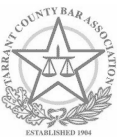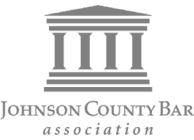Understanding the New Texas Trucking Litigation Law
 For years, trucking companies in Texas and throughout the U.S. have protested the ease with which plaintiffs who have been injured in trucking accidents can tie businesses up in litigation. Most trucking accidents that involve more than one party occur because one or more vehicle operators have made an error when driving. It is, therefore, often appropriate to question whether a truck operator has made a mistake that contributed to the cause(s) of a crash. However, it is rarely appropriate to assume that a truck operator’s human error is rooted in the business practices of their employer.
For years, trucking companies in Texas and throughout the U.S. have protested the ease with which plaintiffs who have been injured in trucking accidents can tie businesses up in litigation. Most trucking accidents that involve more than one party occur because one or more vehicle operators have made an error when driving. It is, therefore, often appropriate to question whether a truck operator has made a mistake that contributed to the cause(s) of a crash. However, it is rarely appropriate to assume that a truck operator’s human error is rooted in the business practices of their employer.
Texas lawmakers have taken notice of the frequency with which injury victims name trucking companies as defendants in litigated disputes and they have recently taken significant action to address this situation. In implementing a new bifurcated truck litigation scheme, Texas legislators have made it less likely that trucking companies will be tied up in litigation when their business and employment practices have nothing to do with the cause of a crash.
Business Operations Do Not Automatically Result in Liability
Companies may potentially be held liable for harming individuals and other entities in the event that their business practices, failure to uphold business agreements, and other negligent or willful misconduct causes another’s harm. Yet, this does not mean that simply because a business operates, it may be held liable for the actions of one of its employees.
Narrowing the Focus of Inquiry
Until the bifurcation law was passed in Texas, attorneys for crash victims were broadly permitted to submit information about a trucking company’s practices and history in attempts to illustrate that broader issues within the company somehow rendered it liable for any particular crash. Now, plaintiffs in a bifurcation suit must – in “phase one” of the trial process in which a company is named as a defendant – prove that the company’s maintenance or employment practices directly contributed to the cause of their specific crashes. Only if the truck operator or company is found liable in phase one of the lawsuit can a company’s broader practices be challenged if the lawsuit moves on to phase two.
Connect with an Experienced Tarrant County Trucking Lawyer Today to Learn More
While this new legal approach does make it more difficult for trucking companies to be held liable for actions that have nothing to do with their business practices in Texas, trucking companies generally operate in numerous jurisdictions. Speaking with the reputable team of Tarrant County, TX trucking lawyers at Cain & Kiel Law can help trucking executives to better understand their vulnerabilities when it comes to potential liability of all kinds. Safeguarding one’s company from liability in one area of its operations tends to make the company more legally sound overall. To learn more, do not hesitate to schedule a confidential case evaluation by calling 817-645-1717. It will be our pleasure to speak with you.
Sources:
https://casetext.com/statute/texas-codes/civil-practice-and-remedies-code/title-4-liability-in-tort/chapter-72-liability-of-motor-vehicle-owner-or-operator/subchapter-b-actions-regarding-commercial-motor-vehicles/section-72052-bifurcated-trial-in-certain-commercial-motor-vehicle-accident-actions
https://www.pbs.org/wgbh/frontline/article/state-laws-harder-sue-trucking-companies-crashes/
We're Here When You're Ready
To set up a consultation with our attorneys and get the legal help you need, please call 817-645-1717 or fill out the form below:
The use of the Internet or this form for communication with the firm or any individual member of the firm does not establish an attorney-client relationship. Confidential or time-sensitive information should not be sent through this form.
I have read and understand the Disclaimer and Privacy Policy.

 817-645-1717
817-645-1717









